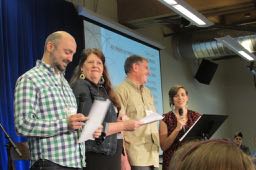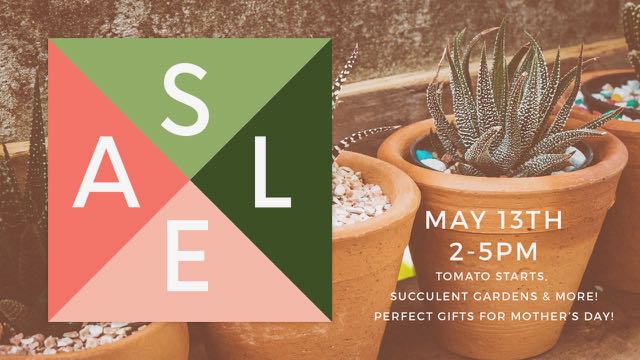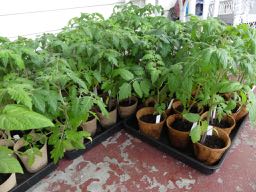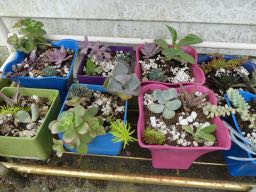by Lilly Lewin
I have found myself whining a bit more that usual this week… about the stress of politics, the stress of dealing with an old dog on his last leg, about my lack of productivity and the fact that my to do list keeps getting longer rather than shorter. Recently I read somewhere that May is one of the most stressful months of the year. In the states, it’s usually the mad dash of end of school activities before summer begins. And sadly we no longer have the lazy days of summer; instead there are camps, swimming lessons, work, conferences, family trips, and DIY projects that fill up the calendar. Sometimes we just need to stop and rest! We all need to be a little more like Mary and a lot less like Martha. Take some time this weekend to sit with Jesus and just BE. And make the time in the next few weeks to be more Maryesque and less Marthaish
SITTING WITH JESUS
LUKE 10: 38-42 At the Home of Martha and Mary
As Jesus and his disciples were on their way, he came to a village where a woman named Martha opened her home to him. She had a sister called Mary, who sat at the Lord’s feet listening to what he said. But Martha was distracted by all the preparations that had to be made. She came to him and asked, “Lord, don’t you care that my sister has left me to do the work by myself? Tell her to help me!”
“Martha, Martha,” the Lord answered, “you are worried and upset about many things, but only one thing is needed. Mary has chosen what is better, and it will not be taken away from her.”
Are you too busy to sit with Jesus?
Are you too busy complaining about other people to just BE with Jesus?
SIT DOWN
Consider all the conversations happening in this passage.
Those in the kitchen, those in the living room.
What about the disciples? Are they hanging out with Jesus too?
Or are they looking for snacks in Martha’s kitchen?
Are they getting in her way?
Is Martha whining to herself before she confronts Jesus?
Or is she whining to someone else?
Where are you in this story?
Are you in the Kitchen working hard?
Or are you sitting at the feet of Jesus being present with Him?
Consider how you are living right now.
Are you really being present with Jesus?
Or are you just whining in the kitchen?
Are you complaining that others aren’t helping you?
Do you really just need to STOP and rest in the presence and love of JESUS?
Sit down here with Jesus and BE PRESENT.
Have a conversation.
Take the Time.
Put away your whining and your busyness.
BE WITH JESUS!
REST
BE STILL
SIT with Jesus and Listen to Him
BE WITH JESUS!
This is the REST station from the “At the Table with Jesus” Sacred Space prayer experience. found at freerangeworship.com
Inspiration takes time I think. Being present to what IS. Seeing, hearing, touching, tasting what is already there as if with new eyes, new ears, new hands, new lips – appreciating with reverence and joy or delight the sacredness of ordinary things. In this way: rocket from a friends garden, dived potatoes and tomatoes, eggs picked up by a housemate who also brings back that first coffee of the day. The meal is symbolic of more than the sum of its parts, overtones of love and life, aromas of sharing and community, flavour and savour more than mere fuel. I wish everyone’s life could be made up of recognising these things that make life worth living… we get busy and we get blind.
I will taste the joy of being awake.

by Shonnie Scott
“The 21st century agents of change—across the world—are women,” Dr. Salim Munayer announced in a slow, deliberate, hear-this-if-you-don’t-hear-anything-else voice at a conference. Dr. Munayer is an Arab Christian who grew up in Israel, a renowned missiologist, and an authority on the Palestinian-Israeli conflict and reconciliation. Such an audacious and unforgettably empowering declaration from such an impressive man sent a shiver down to my toes. Not of trepidation; it was rather a jolt of conviction, responsibility, and courage. Boom!
At the time, I was in the thick of nurturing a fledgling congregation. Talk about serving as a change agent! Women church planters are still a very, very small group amongst pastors, but there are at least five reasons the world needs more women church planters serving as God’s change agents.
1. Women church planters are a real-time demonstration of God’s original, very-good plan for humans—that at creation, men and women were given an equal responsibility to bear God’s image, have dominion/”rule” over creation, and be fruitful. As a woman pastor, I have never thought of my ministry as a “right” or “equal opportunity,” but rather as a God-given, ordained-at-creation equal responsibility (Gen 1:26-28).
I say “yes!” to whatever assignment God gives me. Period. Women church planters are a living testimony to the world of what it looks like when men and women take equal and full responsibility to become all God intended, and partner alongside each other to fulfill God’s mission—God’s kingdom come and will be done, on earth as it is in heaven!
2. The church may have travelled through a couple millennia accustomed to mostly male leadership, but history is on an irreversible redemptive trajectory, fueled by the incomparably great power of Christ’s resurrection (Eph 1:19). And we are presently living in the “afterward” the prophet Joel spoke about (Joel 2:28, 29), and Luke repeated in Acts 2:17-18: “‘In the last days, God says, I will pour out my Spirit on all people. Your sons and daughters will prophesy… Even on my servants, both men and women, I will pour out my Spirit in those days, and they will prophesy.”
Not only will women prophesy, they will exercise all the Spirit’s gifts alongside men. Nowhere does the New Testament mention gender-specific Spirit-gifts.
3. Women are extraordinary models of courage and obedience when they say “yes!” to God. Deborah, Esther, Mary who birthed Jesus, Mary Magdalene, first to return to Jesus’ tomb and witness to his resurrection, just to name a few biblical examples. God’s call on women for extraordinary assignments subverts and surprises a patriarchal world. Humans look at outward appearances (including gender) but God looks at the heart (1 Sam 16:7). Some think that history-making, change-agent women are the rare exceptions, yet over and over in Scripture and history, ordinary and unlikely women are lynchpins in fulfilling God’s mission.
“We have seen it in so many places: When things get rough, when things are at their worst, when everyone else flees or is in hiding, very often it is the women who stand up, offering themselves, becoming completely vulnerable as they submit to the risk of death. That is indeed their strength and their power.” (Jim Wallis, “While the Men Were in Hiding, Women Delivered the Greatest News the World Has Ever Known“).
4. Having been on the receiving end of oppression and discrimination, women are experientially positioned to identify with other marginalized and less-empowered humans, and vice versa. The least, last, and lost often experience women as safer and more credible than men because there is an unspoken understanding: “you have walked in my shoes.” Everywhere we look, past and present, Christ-following women are on the frontlines of the hard, slow, heart-wrenching work of justice ministry. Women church planters are especially primed to “do justice, love mercy and walk humbly” (Micah 6:8).
5. Out of necessity or limited options, women often go or are sent and are willing to minister in less popular, more challenging places. For example, in the early 1800s, opportunities for single women to support themselves through full time ministry in the US were almost non-existent. That, combined with significant public opposition, prompted the movement of many single women overseas to the foreign mission field where they were far away from church hierarchy. From the church’s perspective, they were “out of sight, out of mind,” but God was powerfully using these willing laborers! Today, women are disproportionately called or sent to smaller, aging, and/or rural congregations. Women tend to be drawn to difficult and dangerous pioneering work. It’s a good thing because “the harvest is plentiful but the laborers are few!”(Luke 10:2).
These are just a few reasons the world needs more women church planters, and why women church planters are mission-critical change agents in the kingdom. While women planters may encounter resistance, they must remember this truth spoken of Peter and the apostles by the wise Gamaliel: “Leave these men alone! Let them go! For if their purpose or activity is of human origin, it will fail. But if it is from God, you will not be able to stop these men; you will only find yourselves fighting against God” (Acts 5:38-39). God is calling women church planters to be unstoppable change agents! And when God is for us, who can be against us?
Further recommended reading:
Mary Kate Morse: https://www.faithandleadership.com/marykate-morse-how-women-plant-churches
Karina Kreminski: http://juniaproject.com/why-women-make-excellent-church-planters/
Carolyn Cutsis James: http://www.missioalliance.org/indispensable-women-plant-churches/
 Shonnie Scott (MA Fuller ’87, DMin Portland Seminary 2010) most recently spent 6.5 years as a solo lead pastor, launching the first satellite campus of Bethany Community Church in Seattle. Her passion is serving as a pastor, mentor, and spiritual director to women pastors and church planters everywhere!
Shonnie Scott (MA Fuller ’87, DMin Portland Seminary 2010) most recently spent 6.5 years as a solo lead pastor, launching the first satellite campus of Bethany Community Church in Seattle. Her passion is serving as a pastor, mentor, and spiritual director to women pastors and church planters everywhere!
This article was first published on the CBE blog

On Saturday we will hold another plant sale at the Mustard Seed House. This year we have lots of tomato starts, succulent gardens and much more. If you live in Seattle and are still looking for a gift for your mother, this is the place for you. Email me at seasickdoctor@gmail.com if you need the address.



By Jeannie Kendall —
Last Sunday I was preaching on the woman at the well, a story very familiar to some people but quite extraordinary in the breath-taking way in which Jesus flaunts every social convention of his day to reach out to a lonely and marginalised woman.
However it is a story which – it seems to me – has been misinterpreted. The woman has always been presented as promiscuous, because she has had five husbands and is cohabiting. But this assumes a control over her life that women at that time simply did not possess. Whilst in those days men could leave their wives for the most trivial of reasons, women could not leave their husbands and were entirely reliant on them financially. To have had five husbands opens the possibility of this woman – unlikely to have been young – being divorced or widowed or abandoned more than once. Did she have children, and if not was this part of her distress or – even worse – why she had been left? Was she living with a man, for survival, who would not marry her? What inner scars she must surely have carried. Who knows why she finds herself so isolated – coming to the well outside her village (which would have had a water supply) and without the safety of other women. People can be very cruel, and many of us carry so much shame that we detach ourselves.
What we do know is that Jesus chose to make himself vulnerable by asking her for a drink, and then gently engaged her in conversation, not accepting her diverting into a theological back alley but quietly persisting to get to the heart of her spiritual searching. I think the conversation must have been longer, but Jesus (who must have told John what was said) honoured her secrets and gave enough to intrigue and challenge us but to keep her identity and history between them.
He still does that for us.
The woman at the Well – John 4
I still remember the heat that day:
Sucking air from my lungs and vitality from my body;
The ground as parched as my throat and arid as my womb – and life.
I watched my feet, despondent,
Not looking around lest I encounter hostile stares
In the unlikely event of a fellow traveller.
My friendless journey somehow a metaphor
For my increasingly isolated life.
And then I saw him;
Indistinct at first, framed by the sun
And I almost turned and ran.
But then he asked me for a drink
And, against all those man-made rules
We began to talk.
He was unlike all the other men –
Declaring love until it called for sacrifice
Then quick to abandon me
Uncaring of my gathering, unseen, scars.
Instead, he sensed my soul-thirst;
Looked at my eyes and not my body:
And so, hesitatingly at first, I gifted him my secrets
And found them not only safely held
But honoured.
And, looking back, I realised
That, as I extended him the cup,
He was offering me new life

Jesus appearing to Mary Magdalene after his resurrection from the dead, depicted by Alexander Andreyevich Ivanov (Public Domain)
by Christine Sine
Mary Magdalene has become one of my favourite New Testament figures. She is also one of the most misused and abused a fitting symbol for women throughout the ages who are still misused abused and blamed. Mary Magdalene was one of Jesus’ most dedicated followers. She was present at his crucifixion and the first to see Jesus after his resurrection. Yet what most of us believe when we think of Mary Magdalene is a “fact” for which there is no evidence. She is remembered as a prostitute rather than as the faithful first bearer of the Good News.
Why do we so easily believe this? Part of it is because there are so many Marys mentioned in the New Testament that it is confusing. However, though her prominence in the story of Jesus probably began to deteriorate shortly after her death, the transformation to penitent prostitute was only sealed on Sept. 14, 1591, when Pope Gregory the Great gave a homily in Rome that pronounced that Mary Magdalene, Luke’s unnamed sinner, and Mary of Bethany were, indeed, the same person.
We easily forget or ignore the fact that women played a prominent part in the leadership of the church Sadly as Christianity became more mainstream it also became more patriarchal and the roles of women as disciples, elders and leaders (some even say as apostles) was quickly overlooked or reinterpreted.
We still like to think the worst of women and want them to “keep their place”. Like most women in leadership I am quite familiar with this. As a young doctor I was told it was wrong for me, a single woman to earn more than a married man, and I was, on several occasions, refused positions of leadership just because of my gender.
The church is often at the forefront of abuse and discrimination. When Sarah Bessey started a Twitter conversation using the hashtag, #ThingsOnlyChristianWomenHear on April 18 it took off in a way few expected and the conversation is still rippling round social media. Women shared stories of rape, abuse, and sexism in the church and how the bible was used to justify these things and keep them quiet. Men blamed women for not submitting to their husbands or leaders or just for wearing provocative clothing. “They deserved to be raped” some said.
The discussion about pregnancy and health insurance here in the U.S. was the final straw for me. So many inequalities still separate women from men in almost every country in the world and it seems to me that our present political environment exacerbates it. Prior to the Affordable Care Act women often paid more than men for the same coverage but health insurance for pregnancy, labor, delivery, and newborn baby care became mandatory in 2014 under Obama’s plan. That could soon change however and when women are at their most vulnerable they could once more be made to suffer financial hardships. It’s not as bad as when masters could impregnate their servants and then throw them out onto the streets but it seems to have some of the same flavor to me.
What Is Your Response?
As you can tell this is an issue that is very upsetting for me and I pray that you will forgive me. However I believe that Jesus brings the freedom of equality to all persons and where we see inequality we all need to speak out. As Galatians 3:28 says There is neither Jew nor Gentile, neither slave nor free, nor is there male and female, for you are all one in Christ Jesus. Biblical scholars have told me that this was one of the creedal texts of the early church, so why do we not believe it? The gender gap is still very obvious not just in our world, but in God’s family.
Prayerfully consider your own response firstly to Mary Magdalene and then to women in your life. Are there misconceptions in your views of them? Are there ways in which you discriminate against women by not treating them as equals? How would God have you respond.
BISHOP JOHN OF BEVERLEY
Died May 7, 721
John of Beverley was the scholarly Bishop of Hexham for 33 years and later was consecrated as the Bishop of York in 705. He was also known as a great preacher, evangelist, teacher, and miracle worker.
Throughout the years, John of Beverley has had numerous devotees including the great mystic and 14th c. anchoress Julian of Norwich. She described him as “a kind neighbor of pure knowing.” The famous scholar Alcuin had a strong devotion to John. In Alcuin’s poem on the saints of York, he wrote of the numerous miracles of John. Even King Edward I and King Henry V were also devoted followers of John. Henry V attributed his win at the Battle of Agincourt in the 15th century to the help from John. It is said that on the day of the battle, that blood and oil flowed from John’s tomb.
John was not only a Bishop, but he was also a miracle worker. What we know about Bishop John derives mostly from The Venerable Bede’s Ecclesiastical History of the English People. Interestingly, since Bede lived at the famous Jarrow Abbey, which was under the jurisdiction of the Bishop of Hexham, Bishop John ordained Bede. This ordination first occurred when Bede was nineteen years old as a deacon and then as a priest at age thirty. Bede had a life-long admiration and affection for his Bishop.
Bede who included the stories about St. Hilda of Whitby in his Ecclesiastical History, quite likely learned about her from John of Beverley. He had trained under her at her double monastery at Whitby. John was one of five bishops that were trained by St. Hilda.
In Bede’s record of John of Beverley, he records that Abbot Berthun of Beverley recounted to him many of the miracles of John. Some of these miracles included the healing of the nun Cwenburgh who was the daughter of the Abbess Hereburg of the small nunnery of Watton near Beverly; the healing of the wife of a wealthy man named Puch with holy water consecrated in the church; the healing of a servant of a wealthy man named Æddi; and the healing of the Abbot of the monastery at Tynemouth who had fallen off his horse and cracked his skull.
One of the more intriguing miracles performed by John was of a young man who was not able to hear or speak and whose head was so covered in scabs that no hair would grow on his head. John prayed over the boy and placed the sign of the cross on his tongue. He also worked diligently with the boy to teach him to speak the letters of the alphabet and to be able to say “yes” and “no.” This young man was later able to speak in syllables and then in words. So, this was an incarnational miracle: human and divine working together. With this miracle, John became the patron saint of those who are deaf. Many more miracles are credited to John, not only in life, but also in his death.
John’s life is not only recorded in Bede’s work, but also in later more embellished biographies and hagiographies by Folcard, John Leland, and William of Malmsebury among others who partially based their works upon Bede’s earlier work.
John was likely born to a noble family in Harpham in East Riding of Yorkshire just a few miles north of Beverley, but we do not know the exact year or even the decade when he was born. Bede says that John lived to be a very old man and that he died in 721. So, John may have been born in the first half of the 600’s.
Three years before John died at a ripe old age, he resigned as Bishop of York and he consecrated his successor, Wilfrid II, as the new Bishop. St. Hilda of Whitby had also trained Wilfrid II. John then retired to the monastery he had founded in a secluded spot called Inderawuda, meaning ‘in the wood of Deira’. This Inderawuda is considered to be Beverley, as at that time this little village was very wooded and was an island in the middle of a lake. The name “Beverley” likely means “beaver stream or lake.”
John’s church at Beverley had special sanctuary rights which were likely more extensive than those of other churches during this time. This generosity has opened the way for fugitives and refugees to flock to St. John of Beverley throughout the centuries. This good-hearted Bishop lived out the words of Jesus the Christ, “when you have done it to the least of these, you have done it to Me.” (Matthew 25:40)
Bede records that John died on May 7, 721. He was buried at his monastery church in Beverley and almost immediately after his death, Beverley became a place of pilgrimage. Pilgrims from the early Middle Ages all the way until the Reformation flocked to his shrine to see his relics and to pray for miracles.
John likely left behind numerous writings that have been lost over time. Robert Bale who died in 1503, recorded that several of John of Beverley’s writings were in Queen’s College in Oxford.
1,300 years later, John of Beverley’s life is still remembered and celebrated. The feast of St. John is celebrated on the Thursday nearest May 7, when the choir and members of the congregation of Beverley Minster go to the church of John’s birthplace at Harpham. There is a procession to the flower festooned well of John. After singing an anthem and praying, the congregation returns to the church for choral evensong.
The annual celebration continues on the Sunday nearest May 7, with the dignitaries of the city dressed in full regalia, led by macebearers processing to the West Door of the Beverley Minster. After the service, the children from Harpham place primroses that they have gathered from the woods on John’s tomb.:/
As an Amazon Associate, I receive a small amount for purchases made through appropriate links.
Thank you for supporting Godspace in this way.
When referencing or quoting Godspace Light, please be sure to include the Author (Christine Sine unless otherwise noted), the Title of the article or resource, the Source link where appropriate, and ©Godspacelight.com. Thank you!

 By
By